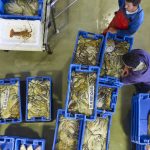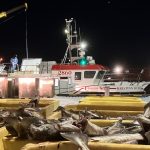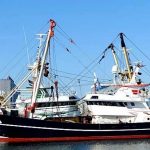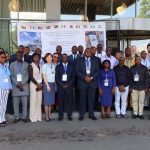Mozambican Fisheries Minister Victor Borges said in Maputo that his government is fully supportive to the international initiatives to combat and eliminate illegal fishing. He was speaking at the opening session of the Third Global Fisheries Enforcement Training Workshop. He said that Mozambique will not tolerate illegal fishing, and they need ever greater cooperation to win the battle against illegal, unreported and unregulated fishing.
Borges stressed that, because around two thirds of the Mozambican population lives along the country’s 2,780 kilometres of coastline, fishing and connected activities are of primordial importance for economic development and for the survival of coastal communities.
The fisheries sector is responsible for 2 percent of Mozambique’s GDP and 3 percent of the country’s exports by value. But these figures almost certainly understate the importance of artisanal fishing. Borges informed that in 2009 out of 150,000 tonnes of fisheries products produced about 85 percent came from small scale fishing. But the strategies for monitoring, control and surveillance (MCS) of fisheries have traditionally been designed for commercial fishing.
He said that this year the government is starting an approach to an MCS strategy for small scale fishing, and this will obviously be a challenge given the characteristics of our coast. To deal with illegal fishing, Mozambican has revised its licensing procedures “to ensure rigorous screening of the history of vessels involved in illegal, unreported and unregulated fishing, guaranteeing that such vessels will not be licensed inadvertently, says Borges.








